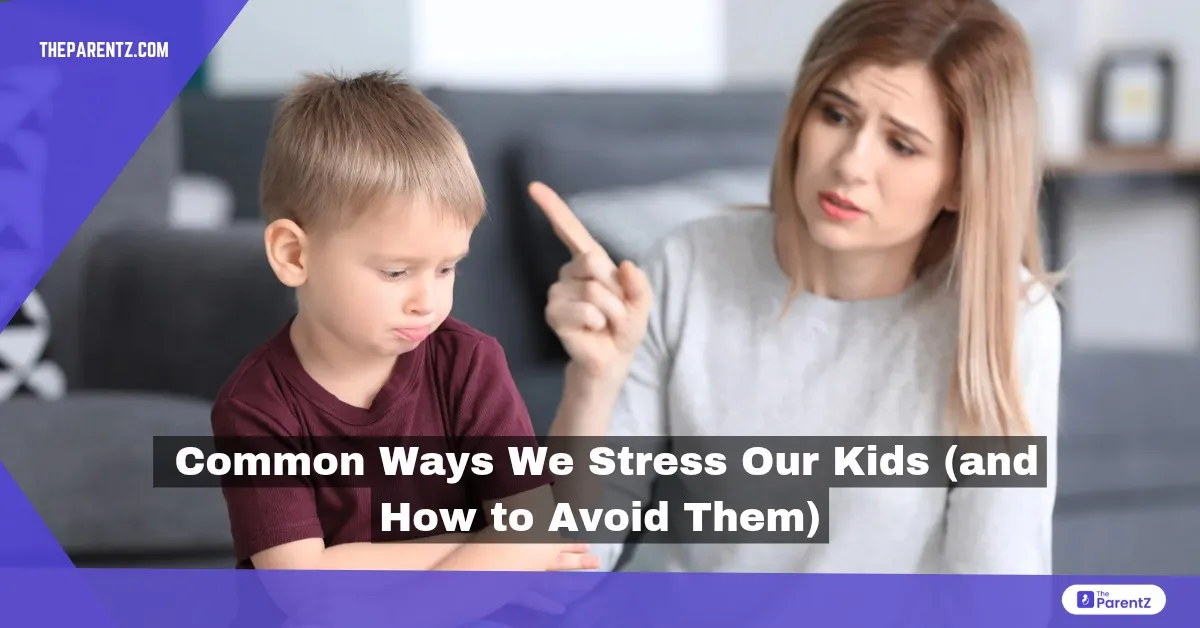Have you ever noticed your child suddenly becoming quiet, irritable, or displaying unexpected behavior? As parents, we often think we know what's best for our kids, but sometimes we miss how our actions affect them. What seems perfectly reasonable to us might actually be causing them significant stress.
Let's take a step back and try to see the world through our children's eyes. Here are some common ways we unintentionally stress our kids and what we can do differently.
Packing Their Schedules Too Tight
Have you ever thought about how much your child actually enjoys their extracurricular activities? We often enroll them in sports, music classes, tutoring, or other programs because we want them to grow and succeed. But from a child’s perspective, a packed schedule can feel like a never-ending race. They may not have time to relax, play freely, or just be themselves.
What It Feels Like for Them:
“I barely have time to breathe! I just want to play with my toys or hang out with my friends, but there’s always something I have to do.”
What You Can Do:
- Ask your child what activities they truly enjoy and let them choose.
- Leave room in their day for unstructured playtime or relaxation. Kids need time to recharge, too!
Expecting Too Much Academically
We all want our kids to do well in school, but sometimes the pressure to get top grades or excel in every subject can become overwhelming for them. They might feel like they’re never good enough or that their worth is tied to their performance.
What It Feels Like for Them:
“I’m scared of disappointing Mom and Dad if I don’t get an A. I wish they’d understand that I’m trying my best.”
What You Can Do:
- Focus on effort rather than results. Celebrate their hard work instead of just the outcome.
- Let them know it’s okay to make mistakes and that learning is about growth—not perfection.
Comparing Them to Others
It’s easy to fall into the trap of comparing your child to their siblings, classmates, or even yourself at their age. You might think it motivates them, but for kids, comparisons often feel like criticism.
What It Feels Like for Them:
“Why do they always talk about how my sister is better at math? It makes me feel like I’ll never be good enough.”
What You Can Do:
- Recognize your child’s unique strengths and talents.
- Avoid making comparisons altogether—focus on helping them become the best version of themselves.
Not Listening to Their Feelings
Kids experience big emotions—sometimes bigger than we realize—and they need us to validate those feelings. When we dismiss their worries as “silly” or tell them to “get over it,” they may feel unheard and unsupported.
What It Feels Like for Them:
“I tried telling Dad that I’m scared about my test tomorrow, but he just said I shouldn’t worry so much. Now I feel even worse.”
What You Can Do:
- Listen without judgment when your child shares their feelings.
- Show empathy by saying things like, “I understand why you’re feeling this way—it’s okay to be nervous.”
Projecting Our Own Worries Onto Them
Kids are incredibly sensitive to our emotions—they can sense when we’re stressed or anxious even if we don’t say it out loud. If we constantly worry about money, work, or other adult problems in front of them, they might start feeling stressed, too.
What It Feels Like for Them:
“Mom always looks worried lately. I don’t know what’s wrong, but it makes me feel scared too.”
What You Can Do:
- Manage your own stress through self-care and healthy coping mechanisms.
- If you need to share something with your child, keep it age-appropriate and reassure them that things will be okay.
Pushing Them Toward Perfection
It’s natural to want your child to do their best—but pushing them toward perfection can make them feel like they’re walking on eggshells all the time. They might start fearing failure instead of embracing challenges.
What It Feels Like for Them:
“I’m afraid of messing up because then Mom will be disappointed in me again.”
What You Can Do:
- Teach your child that mistakes are part of learning.
- Encourage them to try new things without worrying about being perfect.
Conclusion
It’s easy for us as parents to forget that kids see the world differently than we do. What feels “normal” or “manageable” for us can feel overwhelming or confusing for them. They don’t have the same coping mechanisms or understanding of life that we do—they’re still learning and growing every day.
Kids rarely have the words to explain these stresses to us. Instead, they show us through their behavior – tantrums, withdrawal, acting out, or physical symptoms like stomachaches or trouble sleeping.
By recognizing these signs and understanding how our adult actions impact their developing minds, we can make simple changes that dramatically reduce their stress levels. The result? Happier, more secure children who know they are valued just as they are – and parents who enjoy the relationship more, too.








Be the first one to comment on this story.